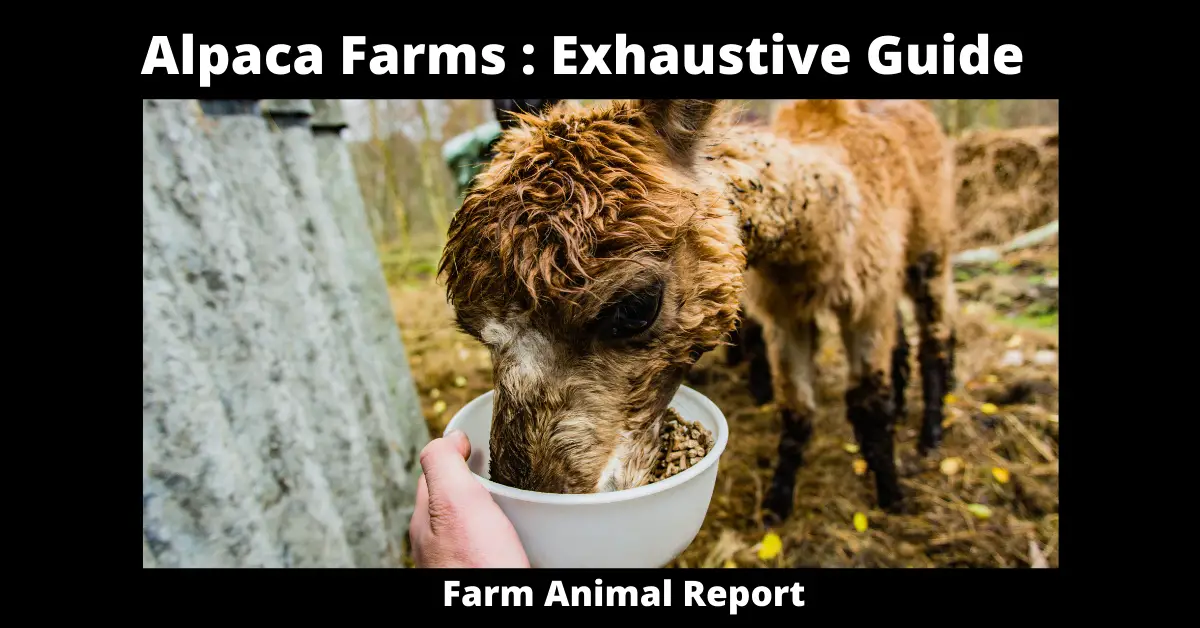As a general rule Alpaca Farms Raise Alpacas as livestock. They are raised for their fiber, wool which is thought of as one of the finest natural fibers. In past times it was called Fiber of the Gods.
Alpaca Farms
Alpaca Farms – Alpacas are considered the finest livestock on the earth and worthy business assets because of their enchanting benefits. Fiber from alpacas is somewhat lighter, softer, and warmer than sheep and other livestock. Moreover, raising alpacas is an environment-friendly act because of their little to no influence on the landscape that might be possible while farming with other hoofed animals.
However, starting an alpaca farm business is likely to stuff alpaca owners’ minds with several confusing questions. Like, either alpaca farming profitable or not? How much does it cost to start an alpaca farm? One thing quite for sure is that no business will ensure a healthy revenue cycle until you stick to a healthy and compelling business plan.
Despite all the appealing benefits of starting alpaca farming, such as tax advantages and profit opportunities, business success will entirely depend upon creating strategies, formulating a plan, and how strictly you stick to an effective methodology.
I hope you got my point, so let’s explore some amazing facts about alpaca farming.
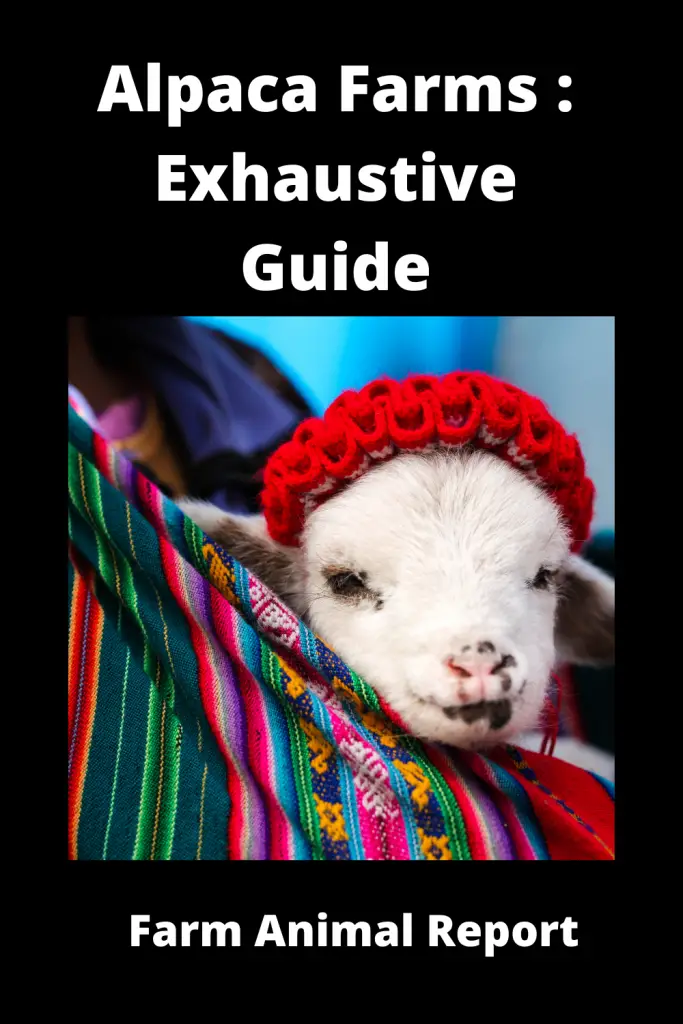
Is an Alpaca Farm Profitable?
The simple answer to this question is YES, but it is not as simple as it seems. Raising alpacas is a matter of priority that predicts either alpaca farming is going on the right track or not. Although the alpaca industry is one of the fastest-growing industries with promising results, several alpaca owners worldwide cannot make the money that the industry promises.
According to experts in alpaca farming, the major reason behind such failures is the misconception of quick-fix about the alpaca farm business as it is, in fact, a long-term investment plan. Therefore, you need to show consistency and patience while waiting to reap your rewards during raising breeding stock and increasing your alpacas’ number.
Here are some effective ways to get benefits from alpacas farming.
18 ways Alpaca Farmers make Money
1-Income from Raw Fleece
Alpaca farming for beginners brings earning opportunities by simply shearing and selling raw fleece in a local market. Alpaca fleece is of great marketing value because of its natural colour varieties that reduce the dying cost. Likewise, fleece from alpacas is a high-priced and favourite material for designers and hand knitters to make luxurious products to run their business.
On average, a single alpaca can produce ten pounds of fibre yearly that you can sell to the local industry or market at the rate of $3 per ounce. In this way, fibre from a single alpaca can generate a revenue of about $500 without investing much in their feeding and maintenance.
2-Income from Spinning
If you are going to take an alpaca fibre farm ownership, you need to keep in mind that the extent of your income will directly relate to the extent of fleece processing. There are more opportunities of enhancing your business revenue by performing all the processings at your farm rather than selling raw fleece to the local market.
Moreover, you can hire hotshots to do all the processes on your land and create your local quality products. Some basic and essential processes include;
- Shearing
- Roving
- Spinning
- Weaning
3-Income from Clothing
Likewise, after taking your alpacas’ fleece to the end processing level, you can start producing your clothing by yourself or by hiring some experts. After that, you can earn extra money by exporting your products or by making your website and launching an online selling platform. As I mentioned earlier, it is not the business that promises success but your priorities and planning.
4-Income from Alpacas Babies
The high-income source from alpaca farming is raising breeding stock. You can sell alpaca babies to those who want a pet alpaca and farmers who want to start alpaca farms. For the breeding purpose, always select top-quality breeding stock, including males and females. You must know that artificial insemination is not possible, so you have to arrange your studs.
5-Income from Meat Export
The alpaca industry is getting popularity in meat exports too. At several alpaca farms where owners want to change their breeding stock or genetics, they prefer culling those animals that are no more perfect for the herd. In this way, an owner can get additional money by linking with the meat and hide industry, thus being able to purchase new genetics to improve his herd.
Alpaca meat falls under red meat with high protein contents with low fats and several health benefits. The modern farmer is also exporting alpaca meat to those countries where it is in high demand. All alpaca farming needs is a successful business plan for its liability.
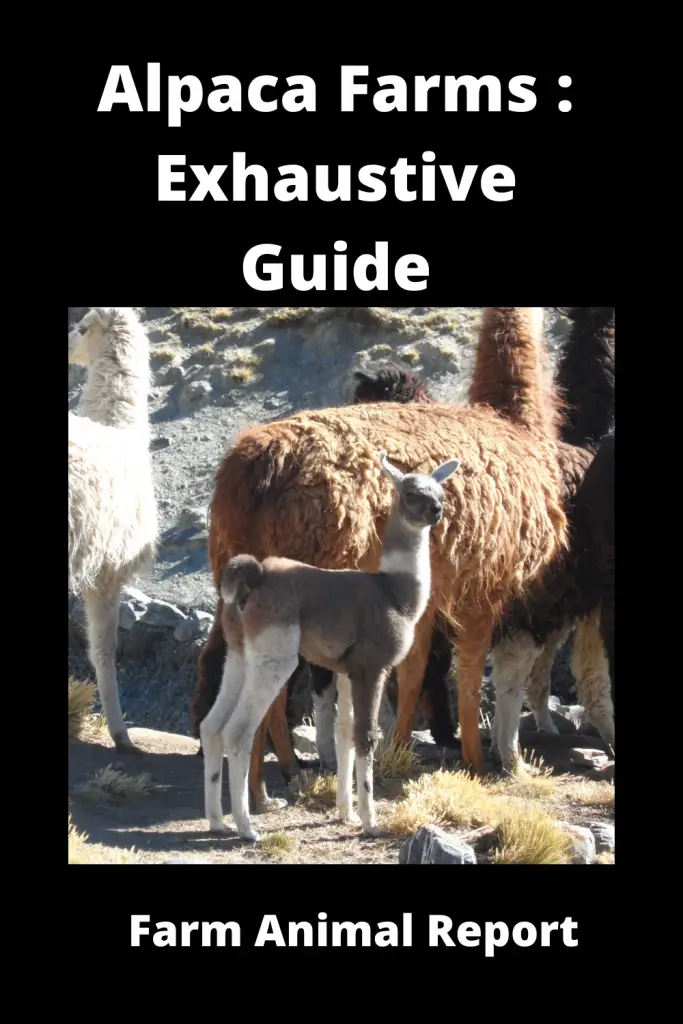
6-Selling Alpacas’ Manure
Doing business with alpacas will never disappoint you as even their manure will bring dollars to home. Alpacas alpaca manure is a natural fertilizer that you can use for your fields or sell to farmers or gardeners. Just like other livestock, alpacas’ manure can be used to build your worm farm that, in return, bears the expenses of your farming business maintenance.
7-A source of Supplemental Income
Years ago, people thought alpaca farming was just a supplemental income source, and an alpaca owner can not survive merely on it. However, nowadays, there are many business opportunities with alpaca farming with advancements in technology at farms and owners’ mentality.
What are alpacas Farmed for?
Keeping in mind that alpacas are fleece-bearing animals, you can confidently say that the major goal of a country where alpacas are farmed is to meet the growing fleece demand worldwide. Years ago, breeders earned money by offering stud services and selling to meet both ends.
Nowadays, the alpaca industry is more than just breeding and selling as owners know about the high fibre demand and marketing. Generally, people raise alpacas for certain reasons, including;
- To change their lifestyles
- Wishing for the initiation of a new business enterprise
- To differentiate from the traditional livestock farming methods
- For the sake of creating retirement income and increasing pension fund
- To get tax benefits from high authorities
- Producing top-quality fleece to meet commercial demands
- Implementation of selective breeding methods to get a quality breed
- To enjoy animal insurance benefits by availing an easy process
Is Alpaca Farming Cruel?
Some organizations, such as PETA, consider shearing as a cruel act due to imposing stress on animals and accidentally cutting some flesh during this process. These are all lame excuses as shearing is done for the sake of health safety and prevention from heat stress in hot summers. So, alpaca farming is not cruel as it is no more than a myth.
If alpacas are not shorn yearly, there are chances of;
- Getting matted fleece — reduced fibre marketing
- Skin infections due to deposition of dirt and allergens from pasture
- Parasitic infestation like ticks, lice, and fleas
- Heat stress during summers
- Uncomfortness to the animal
That’s why don’t listen to rumours and misconceptions and do whatever you think is better for the well-being of your herd. Shearing animals regularly ensures a good lifestyle of alpacas on your farm and strengthens your business venture.
What is the Average Cost of an Alpaca?
You need to consider investment costs in your alpaca business plan before assuming any revenue opportunities that vary significantly between farms. According to a rough estimation, an alpaca will cost you between $300 to $ 50,000. On the other hand, the average cost of a single alpaca falls between somewhat $2500 to $10,000, depending on the breeding type and particular qualities of animals.
The ownership and caring of particular alpacas is something that determines the ongoing expenses of an alpaca farm. These factors bring about larger variation in the revenue cycle; that’s why you need to be crystal clear about what type of alpaca you need for your business. These could be;
- Pet quality alpacas
- Show quality alpacas
- Hobby farm quality alpacas
The purchase price of the animal is directly influenced by the breed type and purpose of farming. This considerable purchase price variation in local markets also depends upon certain other factors like;
- Lineage
- Personality
- Facial appearance
- Fibre quality
- Age
- Conformation
The high quality — The high demand — The high cost
How much Does it Cost to Start an Alpaca Farm?
The cost to start an alpaca farm varies considerably depending upon breed type and amenities you provide to your animals. The average alpaca farm construction from Alpacas purchasing (3 males Huacaya) to fencing, housing, barn, feed, and medical expenses will cost you about $4000. Before designing an alpaca business plan, alpaca owners need to make a checklist that includes all the necessary expenditures to have a rough estimate of farm initiation.
The detail of expenses is given below (this is just an estimate as cost might varies);
- The average expense for three male fiber-producing baby Huacaya Alpacas = $1000
- The average expense for monthly feeding (including hay, grains, and commercial feed) = $100
- The average expense for housing and barn including shelter (40′ x 20′) = $800
- The average expense for fencing (woven wire fencing for 2 acres) = $1500
- The average annual health expense (including deworming and vaccination) = $200
- The average veterinary visit expense (per visit) = $37
- The average expense for shearing clippers = $100
I hope this will help you how to start a small alpaca farm with minimum resources and budget. All expenses mentioned above for an alpaca fiber farm don’t include the land price (assuming you already have it). Moreover, these are just necessities as there are several other maintenance expenses.
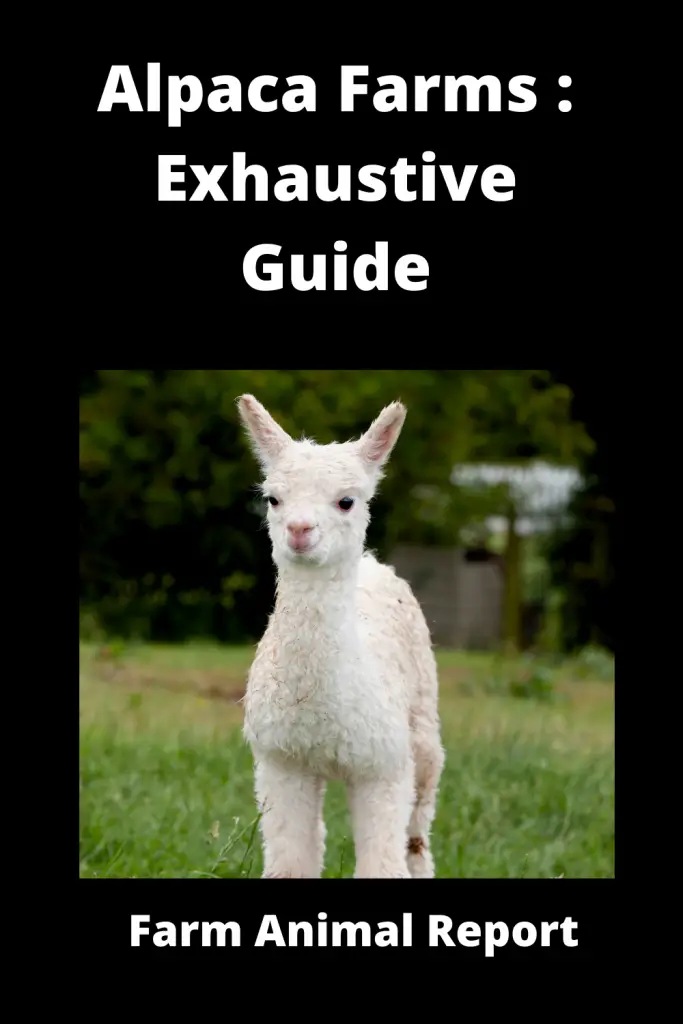
How many Acres do you Need for an Alpaca Farm?
Alpaca farming for beginners needs proper planning and expenditure estimation that alpaca owners can get well by consulting experts in this field. The estimation of land required for alpaca farming is of major concern in addition to caring and maintenance costs. According to expert alpaca owners, 1 acre is enough for 5-8 animals. However, it is always recommended to start your alpaca farm business with a minimum of 2 to 3 alpacas.
The manor reason is the inexperience of novice owners that may lead to management disturbances and health problems of these docile creatures. As time passes, people gain experience by facing and learning lessons from failures, and they try to rectify their weak points. So it is easy and risk-free to deal with a small herd as compared to a large herd.
How much money can you make from an alpaca farm?
Alpaca farming is just like a well full of dollars in which the bucket represents your devotion and struggle whereas the rope your strategies and planning. So, you can get as much money as you want to depend upon your dedication and struggle, followed by an effective business plan. So, here I’ll show you how an alpaca farmer can make money from different business ideas following wise ownership.
From Wool Fleece
One of the traditional and easiest methods to get dollars is wool fleece, which is again categorized depending upon the extent of processing.
- Price for raw fleece (per pound) — $5 to $10
- Price for sorted and skirted (per pound) — $6 to 30$
- Price for roving (per pound) — up to $70
- Price for yarn (per pound) — $110 to $160
- Price for a knitted sweater — $300 to $1000
So, it depends entirely on whether you will sell a raw fleece for $10 or in the form of a finished product for up to $1000.
From Selling Crias
For those alpacas owners interested in raising alpacas for breeding purposes and want to serve as breeders, they can sell young alpacas for $300 to $1500. They can sell them by advertising alpacas for sale to;
- Local farmers
- Local alpaca market
- Pet stores or alpaca industry
- Family members owning alpaca farms
- Friends who are interested in alpaca farming
From Stud Services
One of the best opportunities that you can avail to add extra dollars to your business revenue is by selling stud services to nearby farmers. These animals are easy to feed as they can survive on hay and grass, thus cutting down feeding and maintenance expenditures.
- Price for average stud service in the market– $500 to $800
- Price for an extraordinary stud service — more than $800
Alpaca breeders can enhance their stud service fee by adopting genetic management protocols by improving their breeding herd.
A healthy stud can mount for three times a day. Certain females don’t accept some studs, while one male is enough for fifteen females. So, you can earn more and more.
From Manure
Even the manure of livestock like alpaca can not disappoint you as you can sell it to local worm farms and as a natural fertilizer to gardeners and farmers. These sophisticated animals don’t let you struggle hard in manure collection, so save labour expenditure.
- Almost 4 pounds of manure is produced by a single alpaca per day whose market value is = $40 per day.
- Almost 1500 pounds of manure will be produced by a single alpaca annually whose market value is = $1500 per year.
From Meat
Alpaca meat is famous in certain countries, and owners of alpaca farms can expand their business beyond the borders to get maximum profits from so-called traditional livestock farming.
- The average price for alpaca meat is = $40 per pound
How many Alpacas can you have per Acre?
On an average farm locality, you can have 5 to 8 alpacas per acre of the land. However, the number of alpacas per acre can be increased by providing grazing fields stuffed with hay and other nutritional supplements along with possible rotation. Expert breeders of real estate recommend starting your alpaca fibre farms with a minimum number of alpacas to ensure their proper feeding and fibre production.
Moreover, alpacas are easy to keep because of their low expenditures along with tax and insurance benefits. Provide them with enough space in which these docile creatures can feel free and roam about in a pasture easily without imposing heat stress in summers.
How much Money can you make from Alpacas?
It entirely depends upon the mentality level of owners that how far they are going to struggle to get extra rewards for their efforts. For this purpose, they need to visit other farms and the alpaca industry before starting their own business to know the secrets of successful ownership and marketing.
If you plan for starting an alpaca farm for fibre, keep in mind that you can get almost $500 from a single animal, either male or female, by selling raw fleece without significant investment in fleece processing.
Moreover, a single alpaca’s manure will bring about $1500 per year to your pocket. Therefore, all you need to do is pick up an effective methodology and stick to it with all your heart.
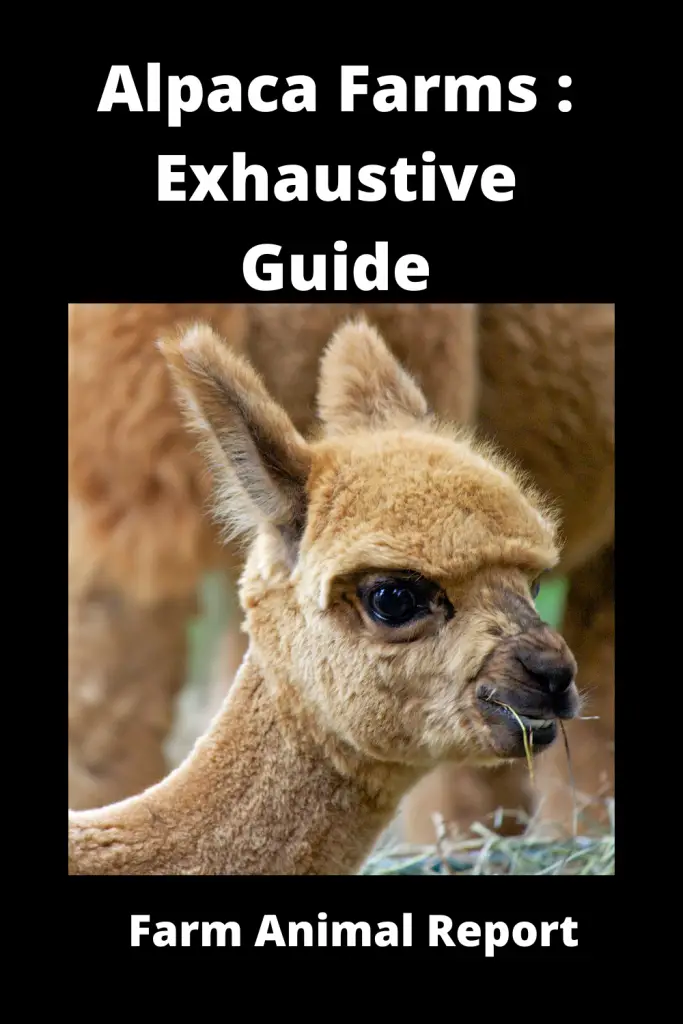
How do I Start an Alpaca Farm Business?
Here are 21 important steps that are necessary to chew over before starting an alpaca farm. These include;
- Visiting nearby alpaca farm
- Going to alpaca shows
- Deciding alpaca breed
- Validating zonal laws and regulations
- Verification of tax benefits and deductions
- Creating an effective business plan
- Selecting a suitable farm name
- Creation of LLC for your farm
- Verification of Federal tax identity or EIN
- Obtaining a license for sales tax
- Consideration of insurance options for livestock and liability
- Preparation of shelter and barn
- Installation of fencing
- Checking the availability of alpacas from expert breeders
- Purchasing medication
- Obtaining pellets, hay, and mineral supplements
- Purchasing supplies like halters, feeding and water buckets
- Searching for a qualified veterinarian
- Arranging shearing clippers and scheduling their shearing
- Getting attached with Alpaca Owners Association
- Revision of business permits and licenses
What do you Need to Start an Alpaca Farm?
Alpacas are sophisticated and docile animals that are easy to handle and do nothing to your garden children. That’s why the only thing you need to worry about is the selection of an appropriate alpaca breed that perfectly suits your business idea in addition to budget.
After that, you have to set your goals and priorities, like what you want to do with this business plan and your resources. Lastly, you need to look for supplies required for the maintenance, caring, and feeding of your alpacas.
How Much do Alpaca Farmers Make?
Alpaca farmers have several business opportunities to avail themselves by just putting their struggle into the business. The fate of an alpaca owner directly depends upon his dedication to earn extra dollars by using all resources.
There is no exact number of dollars that an alpaca farmer can earn; however, on average, a farmer with three alpacas can earn more than $10,000 annually.
Is Keeping Alpacas Profitable?
Alpaca farming shares comprehensive marketing in the alpaca industry because of its easy maintenance, low caring and feeding expenditures, and insurance and tax benefits. An alpaca farm owner needs to create easy investment ways to process all the raw products on his ranch to get maximum outcomes.
Keeping and raising alpacas at your ranch is profitable because they can rely on simple grass and hay or freely grazing on a pasture and resting in a dry shelter.
Is Llama Farming Profitable?
It’s Yes. Just like alpacas, llamas are super-duper profitable livestock to raise for the sake of meat, milk, breeding, wool, and fibre. Llama farms are also availing sales tax and insurance benefits that take away all the worries of farmers.
To get the maximum profit from llama ranching, the only thing you need to look for is cutting down your expenditures by purchasing cheap but reliable supplies. Moreover, if you belong to a country with high commercial fleece demand, there are more opportunities for success.
How much Does it Cost to Raise a Llama?
Llama belongs to the camelid family, a social and polite animal that can grow on hay and grass. In past years, they are raised for the sake of meat and wool. Nowadays, llamas farming is getting famous due to its extraordinary business benefits and easy handling.
The average cost of raising a llama is between $2000 to $3000, including monthly feeding and supplies for making a shelter and barn. It varies depending upon the type of breed and purpose of farming.
Learn More – 18 Ways to Make Money Alpaca Farming
Final Thoughts
Alpacas farming is one of the high-demanding farming industries in the world nowadays. The major reason for its promising outcomes and vast business opportunities lies behind its low maintenance and caring costs. You can enhance your marketing network by creating a website to launch your online business platform. Moreover, keep in mind the simple thumb rule that the more you put your efforts into your alpaca farming, the more you will get extra dollars.
| Farm Name (Open Herd) Over 1200 Alpaca Farms in United States | Herd Size | Location | Contact | Price - Open Females | Males | Stud Fee |
|---|---|---|---|---|---|---|
| Flatland Farm | 18 | Kansas | Dian and Steve Trainer 21302 SW County Line Rd Rose Hill, KS 67133 316-469-9816 316-250-2231 | Open Female $2,000 - $ 6,000 | $2,000 - $12,000 | $1000 |
| Lizard Hill Suri Alpacas | 25 | Colorado | Kent and Sandy Murray 351 PURDY MESA RD Whitewater , CO 81527 970-250-7335 970-243-3520 | $ 500 - $650 | $500 - $1,200 | |
| Alpacas of Paca Meadow | 26 | Washington | Berne and Linda Thorpe 354 Bickleton Highway GOLDENDALE, WA, WA 98620 2535089757 | Call for Pricing | Call for Pricing | Call for Pricing |
| Oden Falls Alpacas | 67 | Oregon | Odin Falls Alpacas Allen Kallel 9101 NW 31st St. Terrebonne, OR 97760 Call Us 5414102324 | Call for Pricing | Call for Pricing | Call for Pricing |
| Circus City Alpacas | 23 | Indiana | Richard/Andrea Hammersley 2642 W 200 N Peru, IN 46970 765-863-3701 765-863-3702 | $ 4,000 - $5,000 | $1,000 - $5,000 | $750 |
| Alpaca Bella Fina Ranch LLC | 39 | North Carolina | Della, Shelby, Mercedes Wagnon 00000 Rocky Mount, NC 27801 1-208-315-5843 | Call for Pricing | Call for Pricing | Call for Pricing |
| Zodiac Ranch | 53 | Michigan | Linda Lundstrom 2791 North Wixom Rd. Milford , MI 48381 (248) 685-0403 248-202-0178 | $1,500 - $12,000 | $3,000 - $25,000 | $500 - $1,000 |
| Redhaven Ranch | 20 | Utah | Red & Marie Armfield 4008 W 1800 N West Point, UT 84015 801.791.7579 801.549.7779 | $ 500 - $2,500 | $ 1,000 - $3,000 | $1,000 |
| Exotica Farm Alpacas | 15 | New York | James Ward 4636 State Route 13 Truxton , NY 13158 315-289-5078 | Call for Pricing | Call for Pricing | $500 |
References
https://www.agric.wa.gov.au/small-landholders-western-australia/basics-alpaca-keeping


